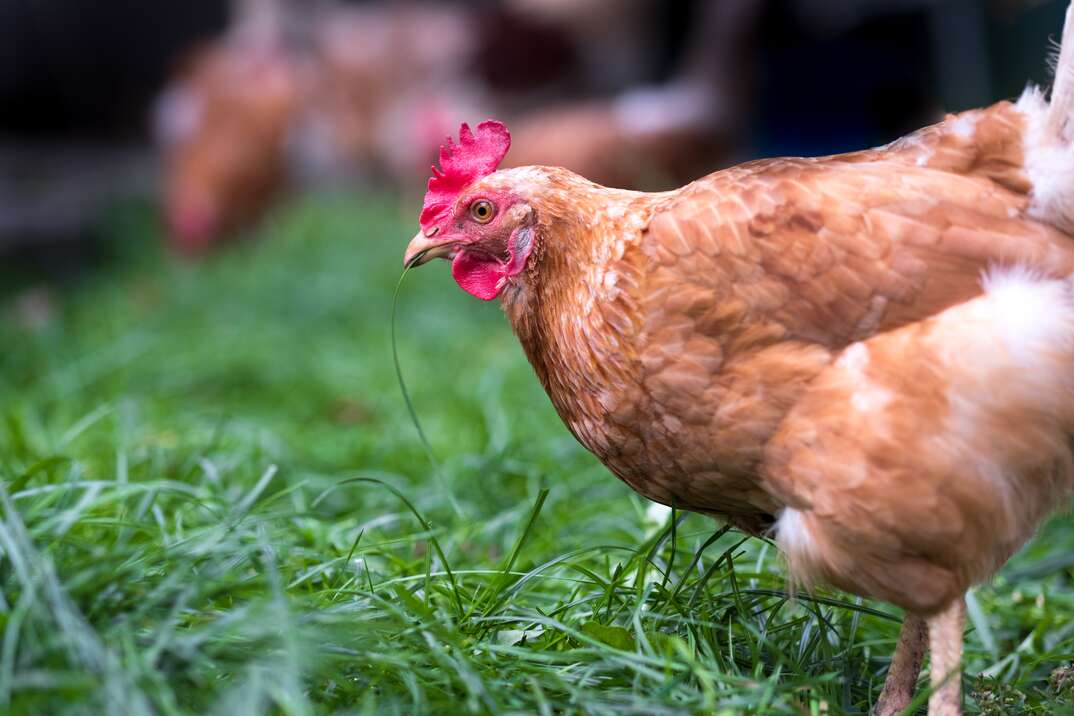- AppliancesElectriciansHVACLandscapingLocksmithPest ControlPlumbingRenovationRoofingT V RepairAll Home Improvement
- Car AccidentClass ActionCorporate LawCriminal DefenseDivorce LawEmployment LawFamily LawFinancial LawLegal AidMedical Injury LawyersMedical MalpracticeReal Estate LawWater Fire RestorationAll Legal
- InvestmentRetirementAll Finance
- Animal InsuranceAutoGeneral InsuranceHealth PolicyHome RentersAll Insurance
- DentalHealth SpecialistsAll Medical
- Animal CareVeterinaryAll Pets
- Auto GlassTowingAll Automotive
Everything You Need to Know About Backyard Farming Permits

If you've ever dreamed of having goats frolicking in your backyard or enjoying freshly laid eggs for breakfast, you may wonder if backyard farming is an option. Keeping backyard livestock can be an enjoyable hobby, and it could even help address food insecurity or become a small business.
However, understanding the rules surrounding backyard farming where you live is essential. Otherwise, you could find yourself in hot water with the local authorities, damage relationships with your neighbors and run into farming compliance issues. This guide outlines everything you need to know about backyard farming, including how to determine the rules in your area and protect yourself legally.
According to Nolo, your property zone usually affects whether you can keep backyard livestock. Backyard farming is often legal in agricultural zones, but it's less likely to be allowed in residential zones.
To further complicate the issue, local, state and federal regulations often affect which animals you can raise in your backyard. Many areas also have specific rules for each type of livestock, so it's essential to check the regulations where you live.
Making sense of the laws governing backyard farming can be challenging for a layperson. Therefore, it's usually easier to contact your city or county's zoning board or office for information. The zoning office can tell you whether your home is in a zone that permits backyard farming, and they may be able to provide information on animal-specific regulations. Otherwise, you could ask the representative to help you contact a local agency to find out which animals you can keep.
Certain species are more widely permitted than others. For example, many jurisdictions allow homeowners to keep chickens and pygmy goats in their backyards, although keeping roosters is often illegal because of the potential for noise disturbance. Keeping pigs is usually unlawful in residential areas. Cities and counties allowing homeowners to keep larger animals, such as horses, typically require owners to have adequate space for livestock to graze. Further regulations may include:
- Enclosure design requirements
- Safe food storage and waste disposal measures
- Restrictions on slaughtering animals on-site
- Minimum distances between enclosures and neighbors' homes
- Restrictions on selling animal products, such as milk and eggs
- Limits on the number of animals per lot
Do You Need a Backyard Farming Permit?
Depending on the rules in your community, you may need an annual permit to raise livestock in your backyard. You may also need a state license for certain animals. For example, you must secure a state and local permit to keep bees, and local officials have the right to check your hives for regulation compliance.
More Related Articles:
- When Do You Need a Lawyer? Determine If You Need to Hire an Attorney
- What Is a Class-Action Lawsuit?
- What Is a Misdemeanor?
- What to Do After a Car Accident
- What Is Power of Attorney?
The noise of backyard livestock can be annoying for your neighbors, and they could have a valid legal case against you if your animals cause a private nuisance. Furthermore, keeping livestock could become a liability if curious children or pets stray onto your property to look at your backyard farm. For that reason, it's always best to consult your neighbors before starting backyard farming, discussing how to keep disturbance to a minimum and prevent hazards. If your neighbors are unhappy with your plans, keeping backyard livestock may be unwise.
Things become more complicated if you want to sell animal products from your backyard farm. You'll need to comply with local and federal laws to sell products such as meat, cheese and eggs, and understanding your legal responsibilities can be tricky for inexperienced farmers. It's wise to consult an attorney if you plan to turn your backyard farm into a food business.
Consider growing your own produce if you can't keep livestock in your area or your neighbors aren’t hip with your vision of a full-service backyard farm. Growing vegetables for your own use is legal in most circumstances and is far less likely to bother those around you.
Elocal Editorial Content is for educational and entertainment purposes only. The information provided on this site is not legal advice, and no attorney-client or confidential relationship is formed by use of the Editorial Content. We are not a law firm or a substitute for an attorney or law firm. We cannot provide advice, explanation, opinion, or recommendation about possible legal rights, remedies, defenses, options or strategies. The opinions, beliefs and viewpoints expressed by the eLocal Editorial Team and other third-party content providers do not necessarily reflect the opinions, beliefs and viewpoints of eLocal or its affiliate companies. Use of the Blog is subject to the
Website Terms and Conditions.The eLocal Editorial Team operates independently of eLocal USA's marketing and sales decisions.



